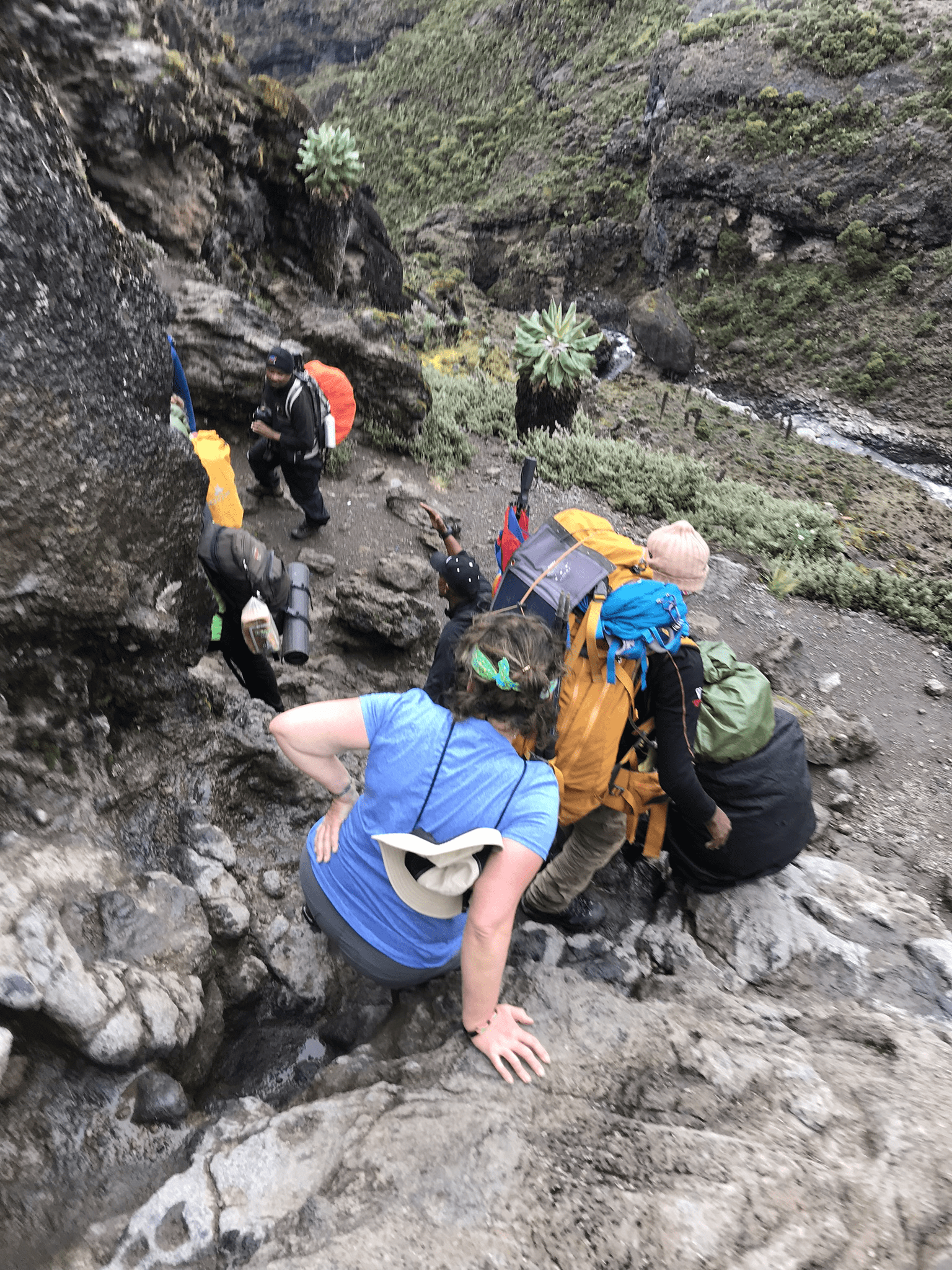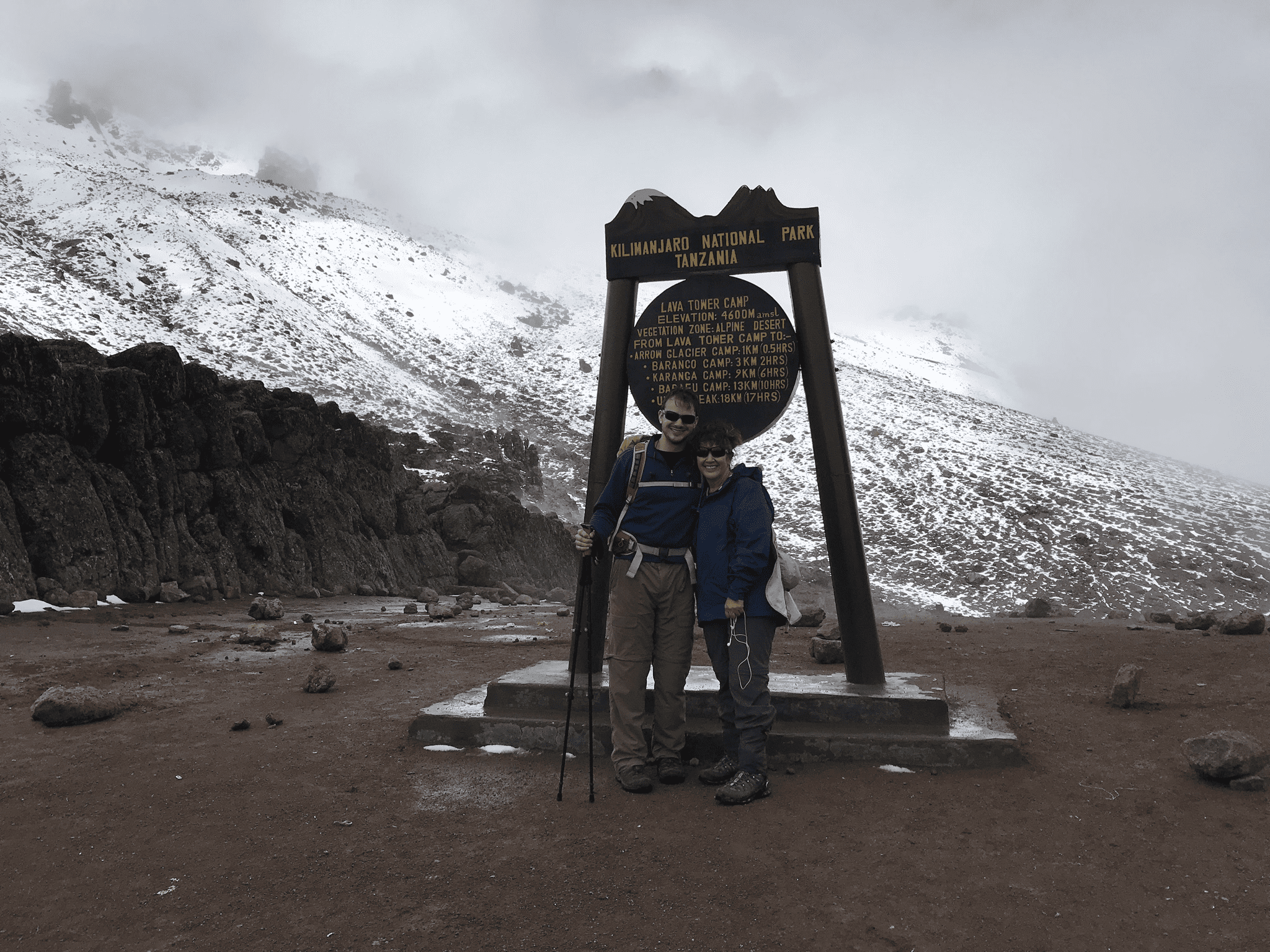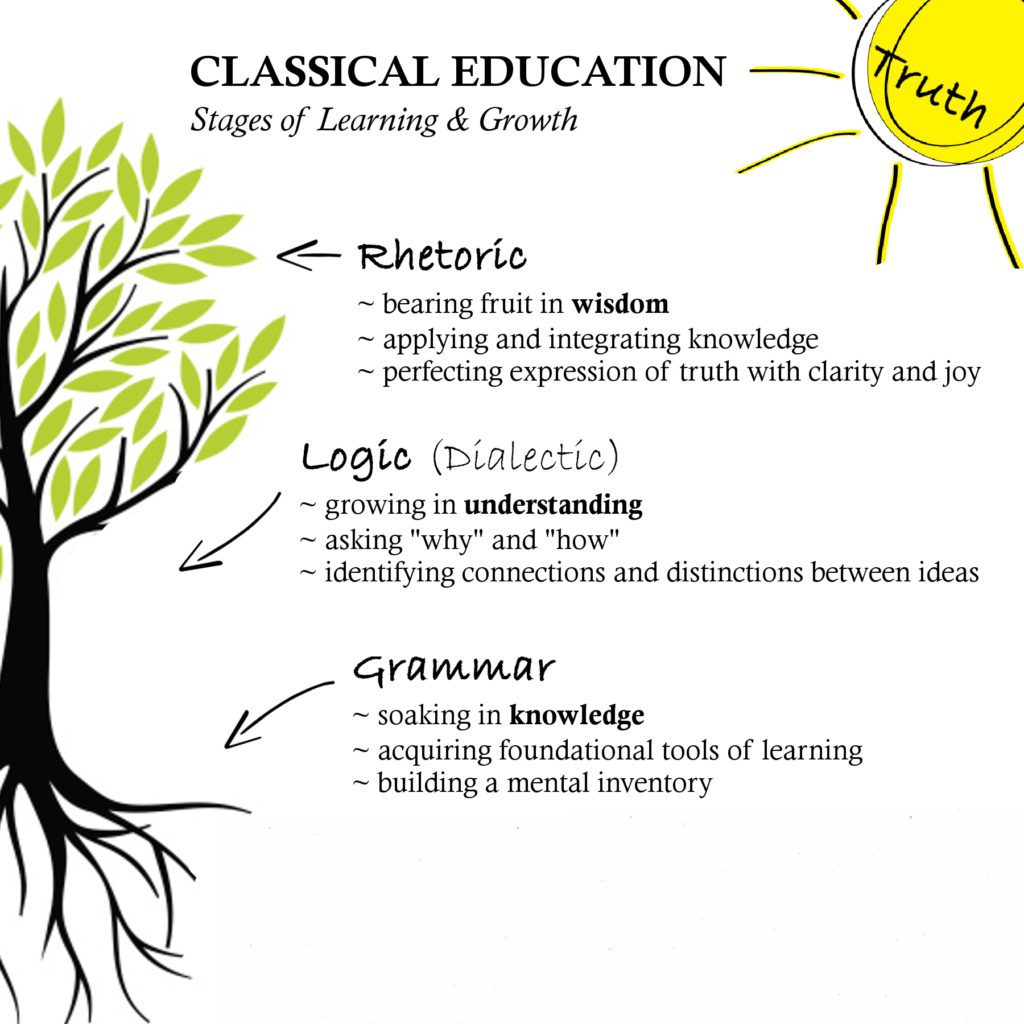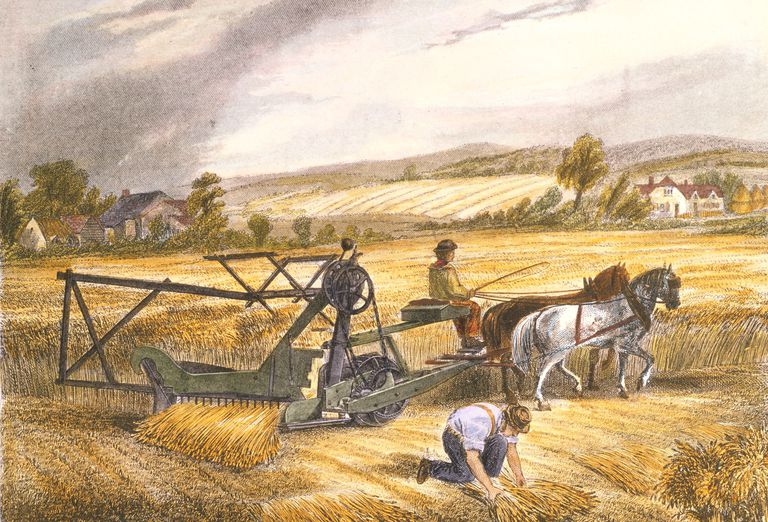
A Gloriously Silent Class
Silence. Sitting in Mr. Paone’s Omnibus IV class, I was sitting in silence. A most excellent silence; an exciting silence; an educational silence. (more…)

Silence. Sitting in Mr. Paone’s Omnibus IV class, I was sitting in silence. A most excellent silence; an exciting silence; an educational silence. (more…)

The fourth day was hard. Already suffering from altitude sickness, I was trying desperately to stay in control of the situation – ha! Imagine my upset when, after climbing several hundred meters to Lava Tower and being told by Ema, my guide, that the rest was an “easy peasy” walk down to our next camp, I realized that “easy peasy” actually meant a steep difficult descent down a thousand feet of boulder strewn mountainside in the rain. “Hakuna matata, mama” said
Ema – “there is no problem here.” Argh!

For those who don’t know, my oldest son and I traveled to Tanzania to climb Kilimanjaro over spring break. March is a tough time to be on the mountain, but we were in high spirits and looking forward to our summit attempt in a few days – that is, until I wasn’t. Allowing myself to be derailed by rain, nausea, and a bad mood based on the differing interpretations of “easy peasy,” I wasn’t careful on the descent, stepped wrong, and dislocated my kneecap again. With tremendous snow and ice on the volcano this year, I knew there was no way I was going to be able to make it to the top. I sat there in the rain soaked and tired with my summit dream disappearing like a wisp of fog, and I fought with myself. I looked around at all the faces watching me, but most importantly, I looked at my son knowing that, despite the fact that at twenty-six he is a grown man, he was watching to see how mama was going to handle this one.
On my own, it would not have been pretty, but we all know I wasn’t alone. I closed my eyes and silently sent up a prayer handing everything over to God; my frustration, my disappointment, my concern about what was to come, and then I did what we as believers do in tough situations – I let it all go, I got up and I finished climbing down.
I didn’t summit, but what I gained was an incredible adventure making it as close to the top as possible while in the company of a wonderful young man who chose to spend his spring break in a tent with his mom. We had an absolutely fantastic time and made memories that we both will treasure forever. But I was also very aware that I could have caused things to end differently. It was the blessing of being able to trustingly lay the unknowns and challenges at God’s feet with the assurance that He would care for me that gave me strength to let the trip be the incredible blessing that it was. Best of all, I could feel peace in my mama’s heart knowing my son had watched me walk my faith.

I want to encourage everyone as we come to this Monday’s meeting and walk toward a bright future together in the coming years – I know sometimes it may feel as if you’re sitting on the side of a mountain in the rain. But just like me, you have a choice to make. The wonderful Joyce Meyer said it so well in her article, “Staying Stable When Trials Come” –
“When a difficult situation comes our way, we have a choice to make: We can get upset, or we can remain at peace. See, the devil tries to set us up to make us upset. But if we stay calm, Satan knows he can’t upset us. And it’s also a sign to God that our trust is truly in Him. “
This article was in my inbox when I returned from the mountain and I want to offer the link as an encouragement to us all. This is such an important reminder that God offers us a place of peace and rest even in the midst of what can, to our eyes, seem like a storm. Yet, if we are faithful, blessings abound. And oh so importantly, as parents and teachers, let us never forget, our children are always watching. What will they learn from us?
28 And we know that in all things God works for the good of those who love Him, who
have been called according to His purpose. Romans 8:28 (NIV)

“Classical education” is actually a modern term used to describe what was once simply called education. The term was birthed out of modern day educators asking what type of education those from past generations received that created the type of faith, character, integrity, thinking ability, speaking ability, and skills that produced great leaders and individuals. The driving passion has always been to give our children the very best education and upbringing that we possibly can. The revival of classical Christian education is fluid; it’s always growing and maturing as a form of education. Classical education is like a very large museum with many beautiful, wonder-filled rooms that could be studied over a lifetime. It’s a long tradition of education that has emphasized seeking the truth, goodness, beauty, and the study of the liberal arts and the great books. What are the liberal arts? They are grammar, logic, rhetoric (the verbal arts of the trivium), arithmetic, geometry, music, and astronomy (the mathematical arts of the quadrivium). This approach to education also includes the study of Latin. The classical approach teaches students how to learn, how to think, and come up with their own thoughts and arguments vs. regurgitating what they are told.
What makes Classical education so effective?
The approach is successful largely because of its approach to how and when students are taught. Regardless of their learning style, children learn in three phases or stages (grammar, logic or dialectic, and rhetoric), known as the trivium. In the grammar stage (K–5), students are naturally adept at memorizing through songs, chants, and rhymes. If you can get children in this stage to sing or chant something, they will remember it for a lifetime. In the dialectic or logic stage (grades 6–9), teen aged students are naturally more argumentative and begin to question authority and facts. They want to know the “why” of something—the logic behind it. During this stage, students learn reasoning, informal and formal logic, and how to argue with wisdom and eloquence. The rhetoric stage (grades 9–12) is naturally when students become independent thinkers and communicators. They study and practice rhetoric, which is the art of persuasive speaking and effective writing that pleases and delights the listener. Again, it’s this approach to teaching students based on their developmental stage that makes this approach so very effective, and this kind of education that has produced countless great leaders, inventors, scientists, writers, philosophers, theologians, physicians, lawyers, artists, and musicians over the centuries. Classical education never really disappeared, but it did diminish starting around 1900 with the advent of “progressive education”. In an effort to restore this most proven form of education, the K–12 liberal arts tradition has been renewed and expanded again over the last thirty years. More than 500 classical schools have started during that time, and tens of thousands of homeschooling families are educating with the classical approach.
To understand how we express a Classical Christian education at Fortis Academy, it’s helpful to understand the primary objectives:
All of the Classical methods are important and valuable, but we need to be very intentional on how we implement them to make sure that we are always meeting our objectives. These methods include but are not limited to:
We also have to keep in mind that there is a difference between mastering a body of knowledge and developing skills. Reading, writing and arithmetic are skills as are critical thinking and oration. These skills are of primary importance throughout the whole education of our children. Specialization in a body of knowledge is secondary. For example, reading, writing , oration, critical thinking and Socratic dialogue skills can be developed in a history or literature class equally. One of the unique elements of a Classical Christian education is an emphasis on Christian thinking, faith, and character in all of our classes. This is the emphasis of Fortis Academy, to use Classical methods with Christian faith and principles weaved together to achieve a Classical Christian education that prepares your students for life, both spiritually and academically.

In a world of tweets, snapchat, instagram, facebook feeds, email, text messaging, and buzzfeed, why does it matter if we write well? Even for those who believe we should, “why” may not be a question on which we reflect. (more…)

Education is not just the impartation of information, nor is it simply about the development of skills. (more…)

Misconceptions: That’s just a popularity contest. Won’t feelings be hurt? It’s not necessary – we’re not a big school. And most unfortunate of all – the students aren’t really capable of self-government. (more…)
Comments